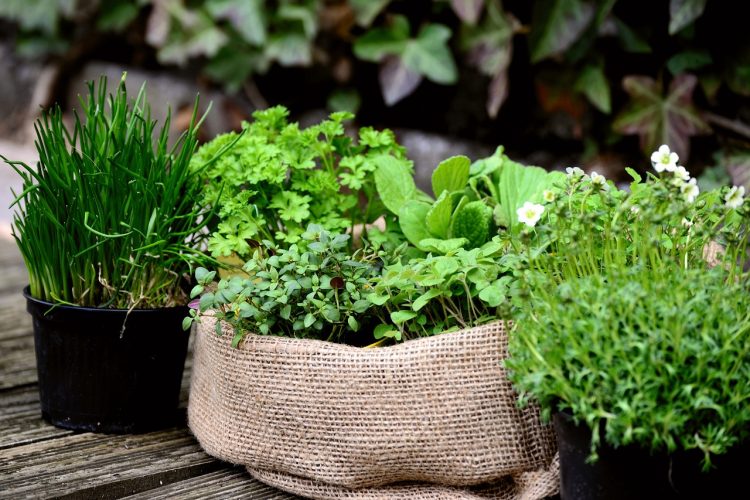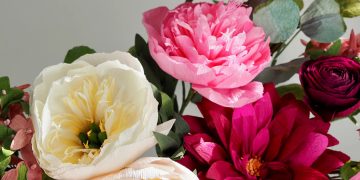A thriving herb garden can bring fresh flavors to your kitchen, delightful scents to your outdoor space, and a sense of accomplishment to your gardening efforts. Herbs are versatile, easy to grow, and can be cultivated in a variety of environments, from spacious garden beds to small containers on a sunny windowsill. Whether you’re a seasoned gardener or just starting out, these tips will help you grow a healthy and productive herb garden that you can enjoy year-round.
Choosing the Right Location
The success of your herb garden starts with choosing the right location. Most herbs thrive in full sun, needing at least six hours of direct sunlight each day. Choose a spot in your garden, patio, or windowsill that gets plenty of sun to ensure your herbs grow healthy and strong. If you have limited outdoor space, herbs can be grown in containers on a balcony or even indoors, provided they receive enough light.
If you are growing herbs indoors, place them near a south-facing window to maximize sunlight. If natural light is insufficient, consider using grow lights to supplement. Herbs like basil, thyme, rosemary, and sage do best in bright light, while others like mint and parsley can tolerate some partial shade.
Selecting Herbs to Grow
When selecting herbs to grow, consider both your culinary preferences and the growing conditions of your garden. Some of the easiest herbs to grow include basil, mint, rosemary, thyme, oregano, parsley, and chives. These herbs are relatively low-maintenance and can be used in a wide variety of dishes.
If you’re new to gardening, start with a few herbs that you use frequently in your cooking. Basil is a great choice for beginners, as it grows quickly and adds fresh flavor to a variety of dishes. Mint is another good option, but it should be grown in a container to prevent it from spreading and taking over your garden. Rosemary, thyme, and oregano are perennial herbs, meaning they will come back year after year, making them a great investment for your herb garden.
Preparing the Soil
Healthy soil is the foundation of a productive herb garden. Most herbs prefer well-drained soil with a pH between 6.0 and 7.0. If you are planting herbs in the ground, loosen the soil and add organic matter, such as compost, to improve drainage and fertility. Raised beds are also an excellent option for growing herbs, as they allow for better control of soil quality and drainage.
For container gardening, use a high-quality potting mix that includes perlite or vermiculite to ensure good drainage. Avoid using garden soil in containers, as it can become compacted and prevent proper root growth. If you’re planting multiple herbs in the same container, make sure they have similar water and light requirements to ensure they thrive together.
Watering Your Herb Garden
Proper watering is crucial for growing healthy herbs, but it’s important not to overwater. Most herbs prefer soil that is kept slightly moist but not waterlogged. Overwatering can lead to root rot, which is one of the most common problems in herb gardens.
Water your herbs in the early morning or late afternoon to reduce evaporation and allow the plants to absorb moisture before the heat of the day. Always check the soil before watering—if the top inch of soil feels dry, it’s time to water. Herbs like rosemary and thyme are more drought-tolerant and prefer drier conditions, while herbs like basil and parsley need more consistent moisture.
Fertilizing Your Herbs
Herbs don’t need a lot of fertilizer to thrive, but a little feeding can go a long way in keeping them healthy. Use a balanced, organic fertilizer every four to six weeks during the growing season to provide your herbs with the nutrients they need. Be careful not to over-fertilize, as this can lead to lush foliage with reduced flavor.
If you’re growing herbs in containers, they may need more frequent feeding, as nutrients can leach out of the soil with regular watering. Use a diluted liquid fertilizer every few weeks to keep container-grown herbs healthy and productive. Compost tea is also an excellent natural fertilizer that can provide your herbs with a gentle nutrient boost.
Pruning and Harvesting
Regular pruning is essential for keeping your herbs healthy and encouraging new growth. Prune your herbs frequently by pinching off the tips of the stems. This will help the plant become bushier and prevent it from flowering too early, which can cause the leaves to lose flavor.
When harvesting herbs, always use clean, sharp scissors or pruning shears to avoid damaging the plant. Harvest in the morning, after the dew has dried but before the sun is too hot, as this is when the essential oils in the leaves are at their peak. Be sure not to remove more than one-third of the plant at a time, as this can stress the herb and hinder its growth.
Controlling Pests and Diseases
Herbs are generally less susceptible to pests and diseases compared to other garden plants, but problems can still arise. Common pests that may affect your herb garden include aphids, spider mites, and whiteflies. To control these pests, try spraying your herbs with a mixture of water and a few drops of mild soap. Insecticidal soap or neem oil can also be effective for controlling pests without harming beneficial insects.
To prevent diseases, make sure your herbs have good air circulation by spacing them properly and avoiding overcrowding. Water at the base of the plants to keep the leaves dry, as wet leaves can lead to fungal diseases. If you notice any signs of disease, such as yellowing leaves or spots, remove the affected parts of the plant to prevent the problem from spreading.
Companion Planting
Companion planting is a great way to help your herbs thrive while naturally deterring pests. Certain herbs benefit from being planted near specific vegetables or other herbs. For example, basil grows well with tomatoes and can help repel pests like aphids and whiteflies. Rosemary and sage are good companions for cabbage, as they can deter cabbage moths.
Planting herbs like dill and cilantro near flowering plants can also attract beneficial insects, such as ladybugs and hoverflies, which help control pests in the garden. Experiment with different combinations to see what works best in your garden and to create a thriving, diverse ecosystem.
Growing Herbs Indoors
If you don’t have outdoor space, you can still grow a healthy herb garden indoors. The key to growing herbs indoors is providing enough light. Place your herbs near a sunny window that receives at least six hours of sunlight each day. If natural light is limited, consider using grow lights to provide the necessary light for healthy growth.
Indoor herbs should be planted in well-draining pots, and it’s important to avoid overwatering, as indoor plants can be more prone to root rot. Make sure your pots have drainage holes and use a saucer to catch excess water. Herbs like basil, chives, mint, and parsley do well indoors and can provide fresh flavor for your cooking year-round.
Dealing with Common Herb Garden Challenges
Even with the best care, you may encounter challenges when growing herbs. One common issue is bolting, which occurs when herbs like basil, cilantro, and dill start to flower and go to seed. Bolting is often triggered by hot weather or lack of water. To prevent bolting, keep your herbs well-watered and harvest frequently to encourage new growth.
Another challenge is poor growth or yellowing leaves, which can be caused by nutrient deficiencies or improper watering. Make sure your herbs are planted in well-draining soil and receive the right amount of water and nutrients. If your herbs are in containers, they may need more frequent fertilizing to stay healthy.
Enjoying Your Herb Garden
One of the best parts of growing an herb garden is enjoying the fresh flavors and aromas of your herbs. Use your herbs to enhance your cooking, create herbal teas, or make homemade pestos and marinades. Fresh herbs can also be dried or frozen for later use, allowing you to enjoy their flavors even when they are not in season.
Growing a healthy herb garden is a rewarding and enjoyable experience that can provide you with fresh, aromatic herbs throughout the year. By choosing the right location, providing proper care, and harvesting regularly, you can create a thriving herb garden that enhances both your cooking and your outdoor space. Whether you have a large garden or just a small windowsill, herbs are a wonderful addition to any home, bringing beauty, flavor, and a touch of nature into your life.










